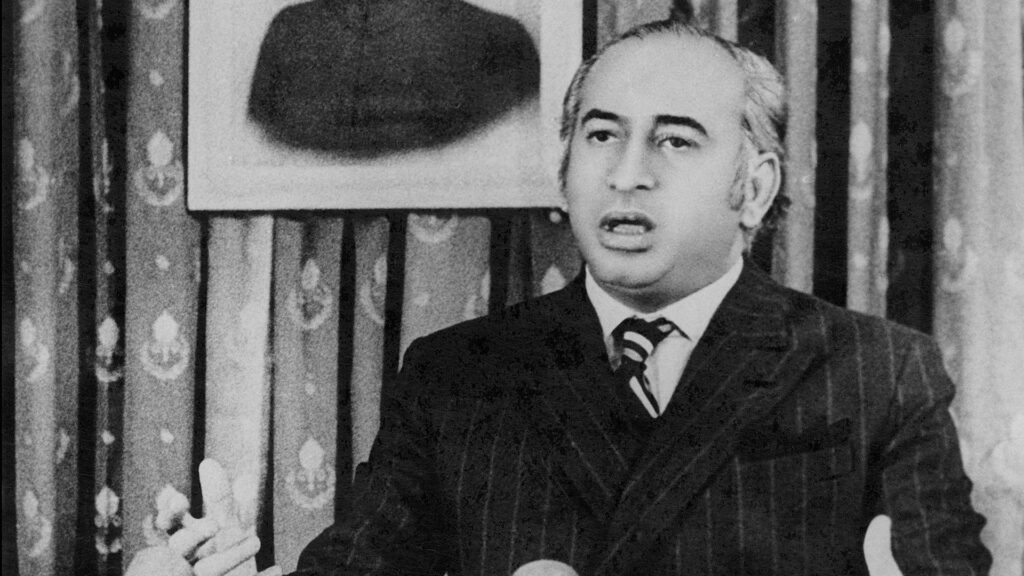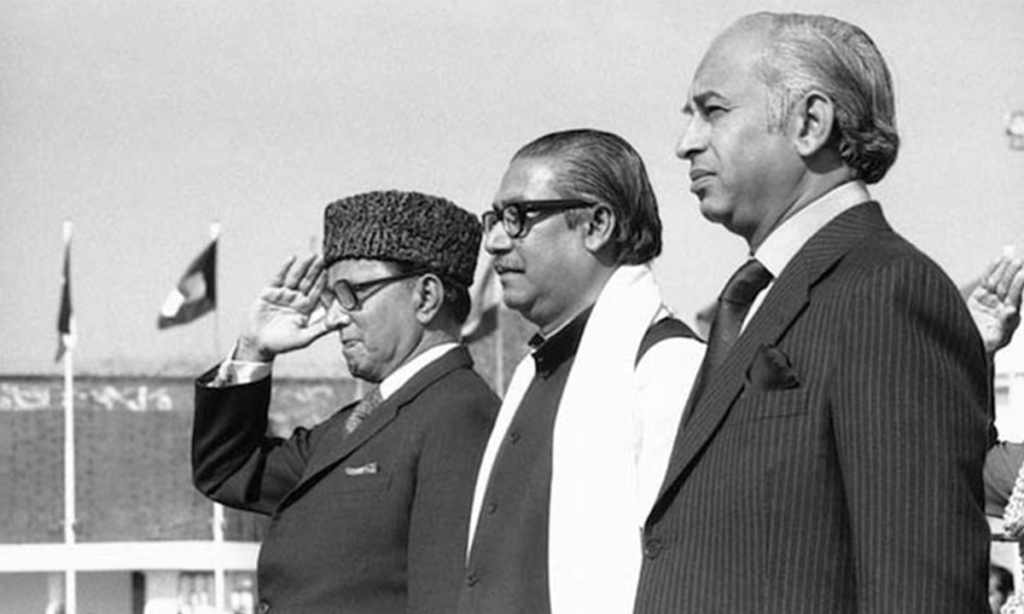
On the 46th death anniversary of Zulfikar Ali Bhutto’s death, the Pakistan Peoples Party (PPP) commemorated his legacy. Leaders, including President Asif Ali Zardari and Bilawal Bhutto-Zardari, paid tribute to his contributions. Ceremonies across Pakistan honored Bhutto’s impact on the nation’s constitution, nuclear program, and foreign policy.
The Pakistan Peoples Party (PPP) marked the 46th death anniversary of its founder and former prime minister, Zulfikar Ali Bhutto, with tributes and remembrance ceremonies across the country. Bhutto was hanged on April 4, 1979, after a controversial trial during General Zia-ul-Haq’s rule.
Zulfikar Bhutto remains one of Pakistan’s most influential political figures. Earlier this year, the Supreme Court acknowledged flaws in his 1979 trial, saying it didn’t meet fair standards. In March, he was posthumously awarded the country’s highest civilian award, the Nishan-e-Pakistan, received by his daughter, Sanam Bhutto.
Born in Larkana on January 5, 1928, Bhutto studied at the University of California, Berkeley, and later at Oxford. He started his political career under President Ayub Khan, serving as foreign minister in the 1960s. In 1967, he founded the PPP, which quickly gained public support with its focus on social justice and basic needs like food, clothing, and housing.

Down To The Memory Lane
Bhutto served as president from 1971 to 1973 and became prime minister after the 1973 Constitution was introduced. He played a major role in rebuilding the country after the loss of East Pakistan and worked to make Pakistan stronger and more independent. His steps toward developing a nuclear program were seen as a way to secure national defense.
Bhutto also hosted the 1974 Islamic Summit in Lahore, where Muslim leaders gathered to discuss unity and cooperation. He aimed to strengthen Pakistan’s position globally by building ties with other nations.
His economic policies, including the nationalization of industries and land reforms, were designed to support workers and reduce inequality. Although some decisions sparked criticism, his focus remained on giving power back to ordinary citizens.
Bhutto’s government was removed in a military coup in 1977. He was later sentenced to death on charges many still believe were politically driven. His execution was widely criticized and is seen as a turning point in the country’s political history.
Today, Bhutto’s ideas still influence national politics. His party remains active, and his legacy continues to be honored by those who believe in his vision of a fair and self-reliant Pakistan.

